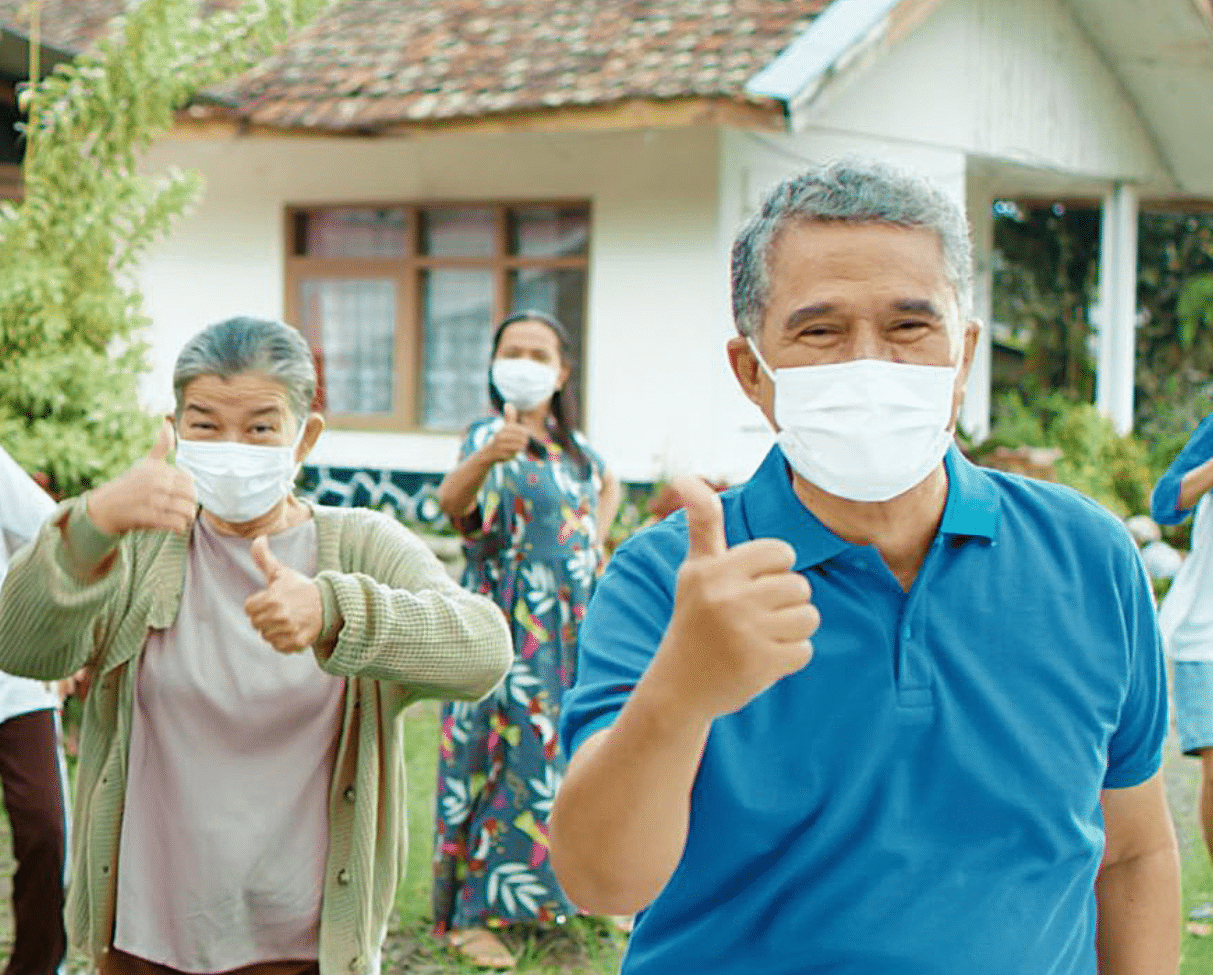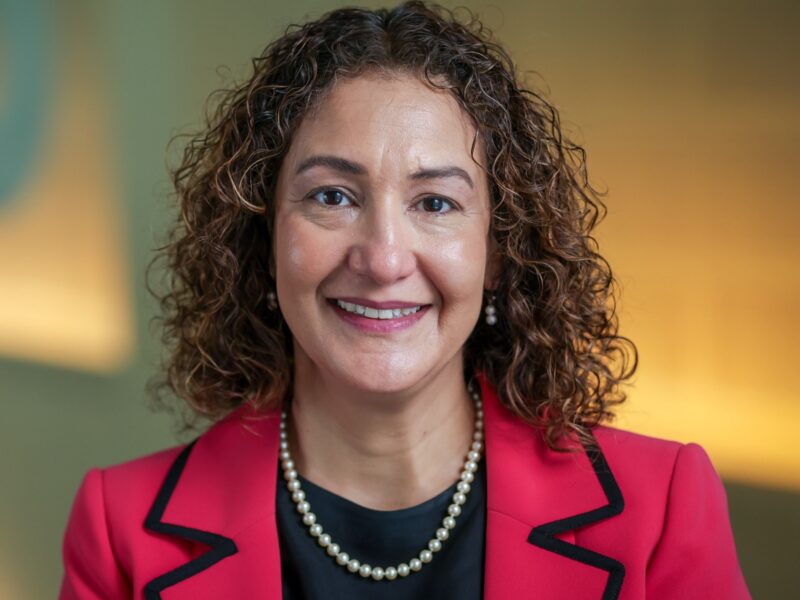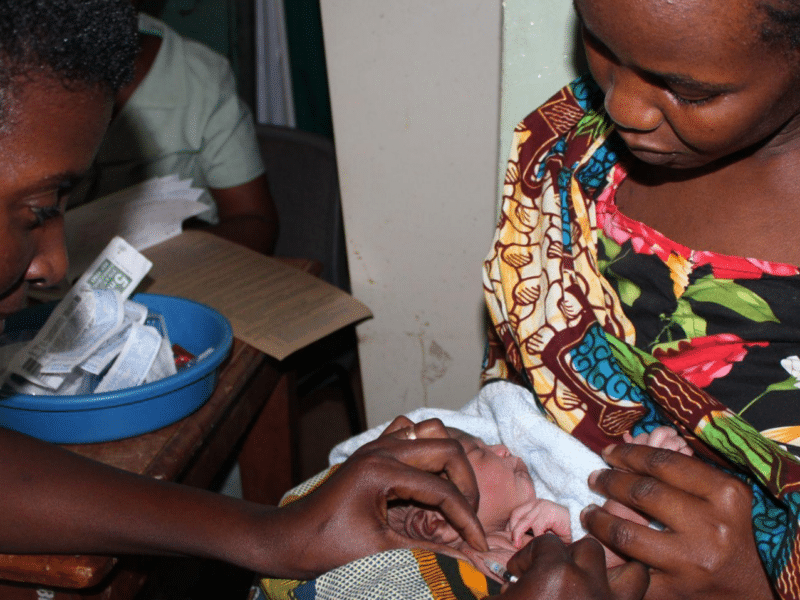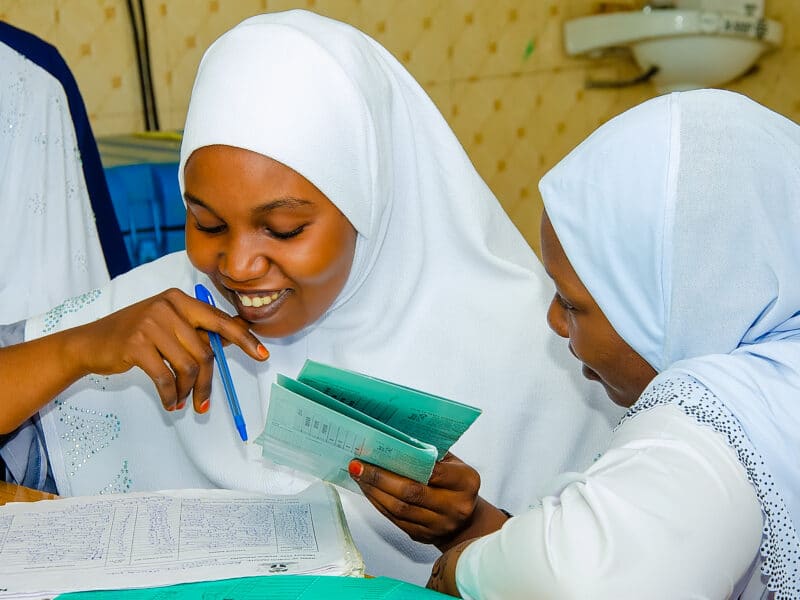As the Indonesian government learned during the COVID-19 pandemic, reaching older people with vaccinations is no easy task, despite the population being one of those prioritized to receive COVID-19 vaccines.
Most older adults felt they did not need vaccination as they rarely go out, and believed younger people should be first in line to get the shots. Mobility restrictions, including those exacerbated by lockdowns during the pandemic, further marginalized older Indonesians from even their routine health services.
One common approach used by the Johns Hopkins Center for Communication Programs-led Breakthrough ACTION project is to use role models to help peers see the value in a specific behavior. In this case, they employed what they called Elderly Heroes, older adults who could effectively invite their peers to get vaccinated based on the trust and comfort they already have with one another.
“The actual experience of the Elderly Heroes who bravely made effort to receive the COVID-19 vaccine significantly influenced other older adults in their surrounding areas,” says Dian Rosdiana, executive director of the Jalin Foundation, and communication team leader for the Breakthrough ACTION project in Indonesia.
“Engagement of Elderly Heroes in the campaign was real proof that the elderly are an organic component of community empowerment. Elderly Heroes took pride in their involvement in the campaign and felt that they made positive contributions to their elder peers and to the general population.”
Elderly Heroes were just one element of a comprehensive campaign in Indonesia to help get second, third and fourth vaccinations to its nearly 234 million eligible citizens. The campaign led by Breakthrough ACTION and government leaders was designed especially to help underserved populations – from older people to fishermen in remote locations to younger people – to see through misinformation to understand the benefits of vaccination and get themselves protected from COVID-19.
In Indonesia, as of the spring of 2023, 86.9 percent of the population targeted received their first dose of a two-dose vaccine regimen to reduce the spread and severity of COVID-19. But only 74.5 percent have received the second dose, while those receiving third and fourth bivalent booster shots have only reached 29.8 percent and 0.91 percent of eligible Indonesians. Most health officials suggest that everyone should get at least a bivalent booster shot, while some have received more than one. The virus that causes COVID-19 mutates with some frequency and immunity may wane in the face of variants.
To counter this, Breakthrough ACTION helped design a national campaign to change behavioral and social norms to provide an accurate understanding about COVID-19 vaccination in parts of five Indonesian provinces. The campaign, focused on overcoming overcome vaccine hesitancy, was implemented through conventional media, social media platforms and face-to-face engagement in hard-to-reach communities.
“The biggest challenge in vaccinating the elderly group against COVID-19 was their tendency to self-diagnose and consider themselves ineligible to receive the COVID-19 vaccine,” says Marlina Ginting, who works in health promotion at Indonesia’s Ministry of Health. “Common issues that were found among older adults include co-morbidities such as hypertension and diabetes, poor health, lack of information about the procedure to get vaccinated, limited mobility, and dependence on families or caregiver, and confusion as a result of disinformation that circulated in the community.”
One Elderly Hero in West Kalimantan explained his role this way: “Don’t be afraid of the vaccine because it is good for us, it protects us from the coronavirus. That was the message that I
presented.”
Engaging Elderly Heroes posed a unique challenge and should be done carefully considering the vulnerability and limitation of older adults, the project found. Elderly people also have limited mobility so the reach of the campaign carried out by Elderly Heroes was only effective in the direct area where they lived or within their close community (such as Islamic prayer group,
church council, fellowship group, or clinic for the elderly). The digital component of the campaign that included Elderly Heroes generated minimum response from the elderly population who generally have little access to digital content.
By contrast, reaching younger people with a call to action for COVID vaccination – particularly those aged 14 to 27 – relied almost exclusively on the use of digital campaigns. But, CCP learned, the messages had to be tailored to them and specifically appeal to youth. Selecting trending content was most effective and messages had to be as simple as possible as well as on topics that appeal to youth. Memes, for example, were more effective in this group than longer photo carousels.
“Young people these days don’t accept direct instructions, something like you have to do this and that,” said a member of the staff at a youth media company. “The approach has to be subtle before you dive into a topic.”
Meanwhile, Breakthrough ACTION successfully reached marginalized and neglected groups in Indonesia such as people with disabilities, sex workers, transgender groups, former drug users, former convicts and hard-to-reach tribes by bringing them together in peer groups, groups who speak the same language or have the same occupation. The program created a sense of community, security and comfort of being in a group, also a feeling of “being in the same boat” and spirit to change that paved the way for community education.
“Significant decreases in COVID-19 cases can be seen as a sign that the pandemic is coming to an end,” says Iwan Ariawan, an epidemiologist from the University of Indonesia’s Public Heath Faculty. “However, vigilance must be maintained. Complete vaccination and information dissemination still needs to be conducted in various regions in Indonesia. While key messages about the pandemic and COVID-19 vaccination contain standardized information that apply to the general public, communicating the information must not use a one-size-fits-all approach, but should be tailored to the local situation, the geographic condition and the socio-cultural practice of the local community.”





